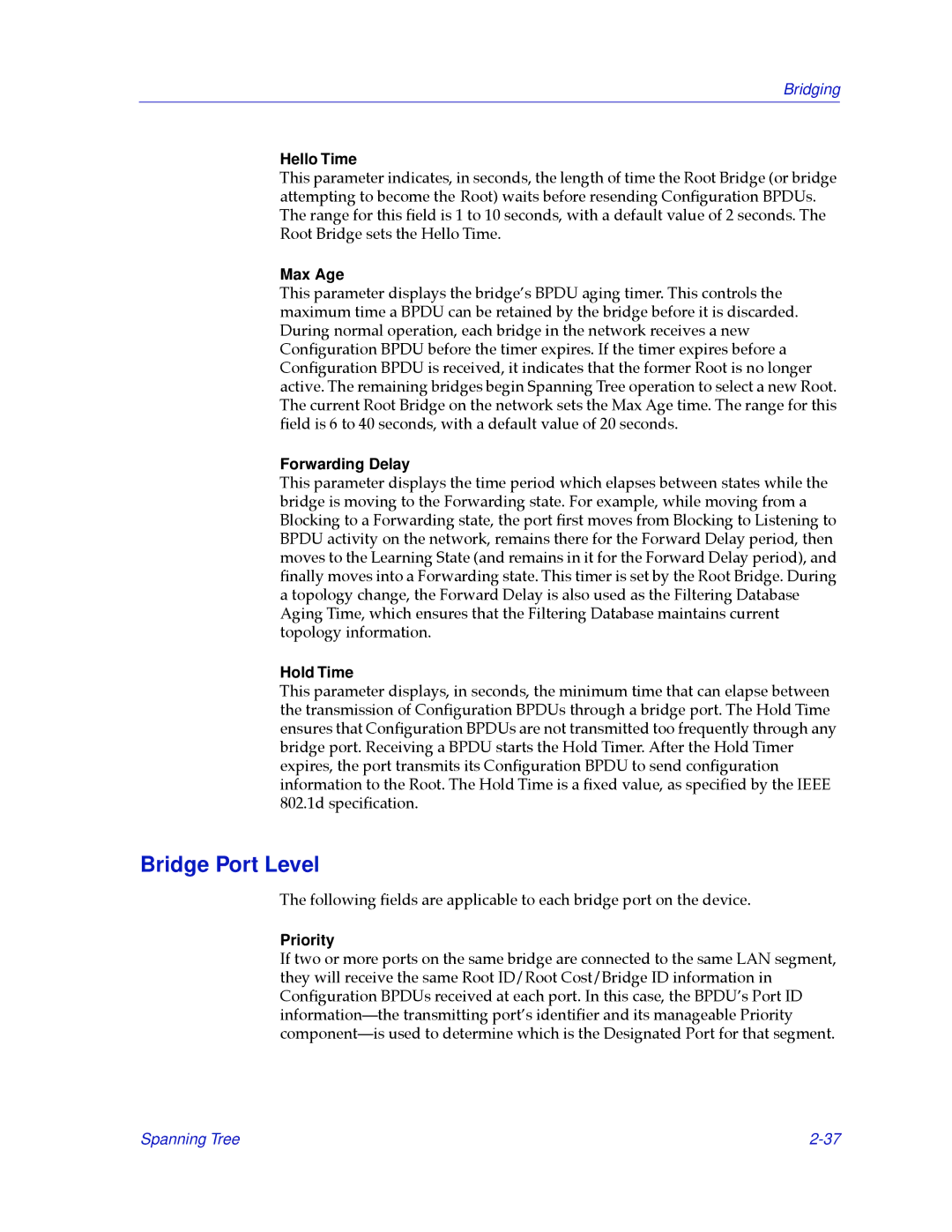Bridging
Hello Time
This parameter indicates, in seconds, the length of time the Root Bridge (or bridge attempting to become the Root) waits before resending ConÞguration BPDUs. The range for this Þeld is 1 to 10 seconds, with a default value of 2 seconds. The Root Bridge sets the Hello Time.
Max Age
This parameter displays the bridgeÕs BPDU aging timer. This controls the maximum time a BPDU can be retained by the bridge before it is discarded. During normal operation, each bridge in the network receives a new ConÞguration BPDU before the timer expires. If the timer expires before a ConÞguration BPDU is received, it indicates that the former Root is no longer active. The remaining bridges begin Spanning Tree operation to select a new Root. The current Root Bridge on the network sets the Max Age time. The range for this Þeld is 6 to 40 seconds, with a default value of 20 seconds.
Forwarding Delay
This parameter displays the time period which elapses between states while the bridge is moving to the Forwarding state. For example, while moving from a Blocking to a Forwarding state, the port Þrst moves from Blocking to Listening to BPDU activity on the network, remains there for the Forward Delay period, then moves to the Learning State (and remains in it for the Forward Delay period), and Þnally moves into a Forwarding state. This timer is set by the Root Bridge. During a topology change, the Forward Delay is also used as the Filtering Database Aging Time, which ensures that the Filtering Database maintains current topology information.
Hold Time
This parameter displays, in seconds, the minimum time that can elapse between the transmission of ConÞguration BPDUs through a bridge port. The Hold Time ensures that ConÞguration BPDUs are not transmitted too frequently through any bridge port. Receiving a BPDU starts the Hold Timer. After the Hold Timer expires, the port transmits its ConÞguration BPDU to send conÞguration information to the Root. The Hold Time is a Þxed value, as speciÞed by the IEEE 802.1d speciÞcation.
Bridge Port Level
The following Þelds are applicable to each bridge port on the device.
Priority
If two or more ports on the same bridge are connected to the same LAN segment, they will receive the same Root ID/Root Cost/Bridge ID information in ConÞguration BPDUs received at each port. In this case, the BPDUÕs Port ID informationÑthe transmitting portÕs identiÞer and its manageable Priority componentÑis used to determine which is the Designated Port for that segment.
Spanning Tree |
